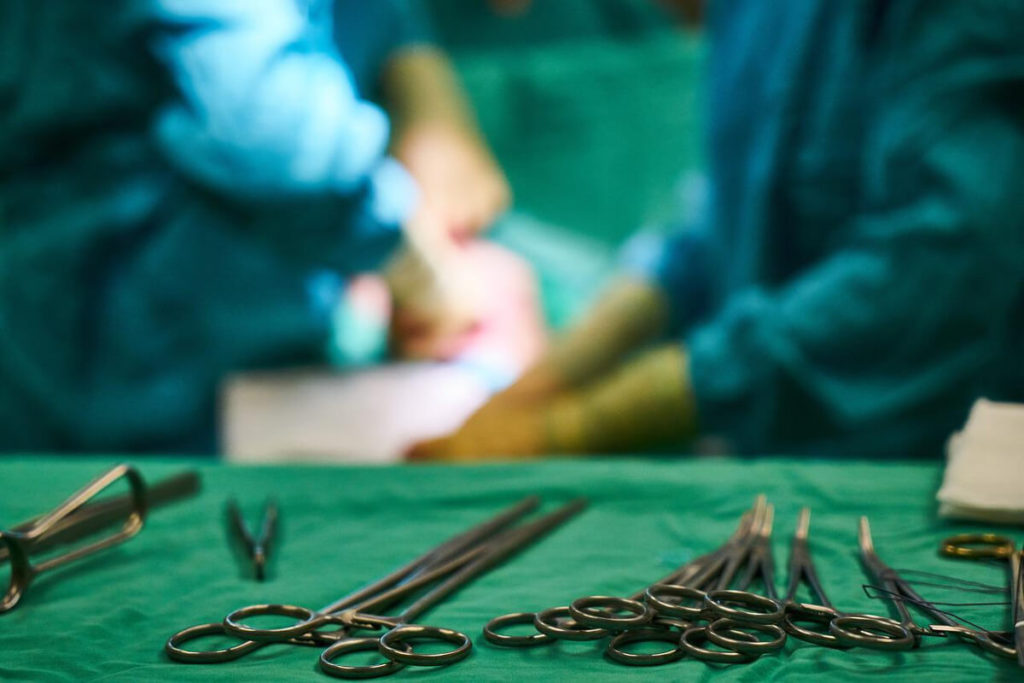
Her quizzical look as she answered the phone soon became one that was all too familiar. It made me sharpen my own awareness as I inched closer to this one-sided conversation. She wore the controlled face of a warrior who had just received the first warning signal of imminent danger. Her widening eyes were my initial indication that we may be facing bloody combat, which rarely had a victor. The others must have sensed it too as they attempted to carry out their duties during this peak hour in the emergency department but found themselves all gathering closer to their leader in an attempt to make sense of what felt like impending doom.
“Folks like to hunt pigs at night, maybe that’s what you heard. The back parking lot? Okay. We will check it out,” she proclaimed as this ardent, petite charge nurse motioned towards the bravest soldier of our bunch.
This nurse never even stopped to think or question her directives. Having been trained in Detroit, I knew that it was never wise to run toward a gunshot, but before I could utter that protest, he bolted in its presumed direction as fast as his long legs could sprint. But we weren’t in Detroit. I had just moved to Hawaii, one of the safest and happiest spots on earth, or so I thought.
The charge nurse didn’t want to start a panic, as she calmly explained to those of us who had now encircled her that one of the other nurses had just stepped outside into the night to enjoy her dinner break when she heard what she thought was a gunshot nearby. Not wanting to believe an act of violence was ever possible in our Hawaiian paradise, we all still managed to don our protective battle gear of masks, plastic gowns, shoe covers and gloves, simultaneously readying the small resuscitation bay for a possible victim in record speed.
Several minutes passed before the nurse who had gone to investigate came running through the ambulance bay, with sweat pouring down his face. I don’t remember anyone taking a breath until he screamed the words, “A woman’s been hit…” and ran back outside.
Two paramedics had just arrived in our ER and finished moving an elderly, German lady with a broken leg from their stretcher. Again without question, they grabbed the gurney and went tearing off into the darkness after him, thinking nothing of their safety or whether there might be a perpetrator still nearby.
I had two seconds to take in the scene as they wheeled her in. Looking down, I saw the deep lines in her unconscious, pale face, framed by greying locks of short hair. Her arms and legs were still moving and seemed to indicate the agony her body must have felt, although she was too far gone to scream out.
She wore black scrubs; her badge was still attached to a pocket just like mine. She was one of us. Oh my God, this could have been anyone of us. This could have been me. Surely all she had been doing was walking to her car after a long day of caring for the sick and injured. Did she see this coming? I prayed it was quick as I stared at the single large bullet hole erupting blood like volcanic lava from her left chest cavity. Who could have done such a thing to this beautiful being?
Then my methodical emergency physician training took over, as I momentarily forgot the horror of the situation, and I began the rapid, indoctrinated process of stabilizing a life that was about to end abruptly.
As I found her vocal cords through my scope and passed the airway tube into her windpipe so that we could send the concentrated oxygen that her organs so desperately needed, the color of the surrounding tissue reminded me of my first cadaver in medical school. Barking orders for the rapid transfusion of blood products as the nurses were securing the life lines they had just placed, I moved on to her chest wall. She still had a pulse but we could no longer obtain a blood pressure.
There was no time to wait for any confirmatory testing. I knew her chest would be full of blood and air. If I released it, I could possibly buy her some time, maybe even save her. Grabbing the scalpel, I sliced open her chest wall just lateral to the gaping wound, right below the side of her left breast. Pushing my forceps and then my fingers through the tough muscles and ligaments which were meant to act as a fortress to protect her heart and lungs and major blood vessels, I placed another tube that quickly filled with massive amounts of blood.
Within minutes she had a real blood pressure and there was color starting to come back to her skin. It was only then that the staff really looked at her face and recognized her as a friend and colleague, one of their own, a retired emergency physician.
I wish I could tell you that this story had a happy ending, that somehow our life-saving skills reunited her with the people that loved her most. Not only did she die on my watch, but I found out later, if she could have spoken, she would have cursed me and my efforts.
The gunshot wound was self-inflicted. She wasn’t mentally ill, nor in the least bit severely depressed. She was terminal and now barely able to walk to her bathroom to relieve herself. In her resolute mind, the end-of-life options available to her at the time were not satisfactory to who she was as a person. Her independent spirit, which had put herself through medical school by driving cabs in New York City and spent her entire life caring for others, refused to die slowly with further debilitation and loss of independence. She devised her plan over months, said her goodbyes to her loved ones, visited her favorite spots on the island and watched her last sunsets.
She had seen too many botched suicides by overdoses as an ER doc and instead chose a violent yet pretty sure-fire way to die by shooting herself right in the heart, close to the hospital morgue so her family could avoid the messy cleanup. In all her diligence, she did not consider the possibility someone might hear the shot and come to her rescue. Did she consider the trauma she would inflict on those who so desperately tried to keep her alive?
I’ve never forgotten her face or her story, yet I don’t remember her with anger. I just feel deep sadness and gratitude; for her, for those that loved her, and for those that cared for her at the end, including myself. Unfortunately, her narrative is not uncommon amongst the dying in states that do not have medical-aid-in-dying laws. Only two years later, she would have had another option when Hawai’i finally passed its law called the Our Care, Our Choice Act, which allows competent, terminal adults the ability to have a peaceful death on their terms. There was a reason I was the ER doc on the schedule that night. I had felt a calling from thousands of miles away to move to Hawai’i for a larger purpose, but one I had yet to fully comprehend. Honoring life and death through education and support would soon become my mission. Never would I have fathomed that, for the entire first year of the law, I would be the first and only physician on any neighbor island to write the legal prescriptions and support the choice, or my advocacy for the dying that would follow, yet here I am.
Image:Pixabay.com
